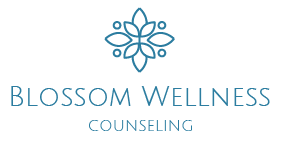Blog
Blog

Stress Management 101: Practical Strategies for Daily Life
There is no one right way to manage stress, although there are many proven ways to exacerbate it, such as neglecting self-care, overcommitting, or ignoring mental health needs. One of the biggest challenges we often face is resisting the urge to push through stress without addressing its roots.
Research suggests that if you take time to recognize, understand, and manage stress, you may find yourself more resilient and better equipped to handle daily pressures. No one should let stress take over their health, relationships, or overall well-being—and that includes you. But beyond that, when you build a life that includes self-awareness, healthy habits, relaxation techniques, and positive thinking, you reduce stress and improve your overall quality of life in a significant way.
Building a Balanced Life
A paradox of stress management is that we often need less complexity and more simplicity than we realize. What we need, though, is essential, such as self-care, emotional balance, physical activity, relaxation, social connections, and meaningful activities. People who focus their attention on these baseline goals and avoid getting caught up in the small details of daily stressors will find they enjoy life more, and that they can handle stressors more effectively.
Did you know that daily routines and physical activity can help reduce stress?
How can daily routines reduce stress?
Daily routines and regular rituals can be powerful tools for managing stress and creating a sense of stability. Starting the day with a mindful activity, such as a brief meditation, stretching, or a healthy breakfast, and ending the day with a wind-down routine, like reading, listening to calming music, or reflecting on the day's positives, can help set the tone for a balanced life. These routines help establish a rhythm that can mitigate the effects of daily stressors.
Why is physical activity so important for stress management?
Research shows that regular physical activity is crucial for managing stress. Physical activity triggers the release of endorphins, which naturally enhance mood. It also aids in lowering the amount of stress hormones present in the body. Activities like walking, jogging, yoga, or even dancing can provide immediate and long-term stress relief. Including movement into your daily routine can improve your mood, boost your energy levels, and promote better sleep.
Practical Strategies for Stress Management
1. Mindfulness and Meditation
Mindfulness and meditation are practices aimed at improving mental well-being and self-awareness, but they have distinct focuses and methods.
Mindfulness involves deliberately focusing your awareness in the present moment in a non-judgmental way. It means being completely conscious of your thoughts, feelings, physical sensations, and surroundings in the here and now.
Benefits of Mindfulness
Reduces stress and anxiety
Improves focus and concentration
Enhances emotional regulation
Promotes overall well-being
How to Practice It
Mindful breathing
Body scan
Mindful eating
Walking meditation
How about meditation? Meditation is a comprehensive practice that uses various techniques to develop focus and awareness, with the goal of attaining mental clarity and emotional tranquility.
There are different types of meditation:
Focused Attention Meditation – Concentrating on a single object, such as the breath, a word, or a candle flame.
Open Monitoring Meditation – Observing all aspects of experience (thoughts, feelings, sensations) without attachment.
Loving-Kindness Meditation – Generating feelings of compassion and love towards yourself and others.
Transcendental Meditation – Using a mantra to transcend normal thought processes and reach a state of restful alertness.
2. Healthy Eating
A balanced diet rich in fruits, vegetables, whole grains, and lean proteins can support your body's ability to handle stress. Avoid excessive caffeine, sugar, and alcohol because these can increase anxiety and interfere with sleep.
3. Sleep Hygiene
Good sleep is crucial for managing stress. To improve sleep quality, try to maintain a consistent sleep schedule, develop a calming bedtime routine, and ensure your sleeping environment is comfortable and free from distractions.
4. Social Connections
Building and maintaining strong relationships with friends, family, and colleagues offers emotional support and creates a sense of belonging. When you're feeling stressed, reach out to those close to you for support.
5. Time Management
Managing your time effectively can help prevent stress from becoming overwhelming. Focus on prioritizing tasks, breaking them into smaller steps, and setting aside time for relaxation and self-care. Additionally, learning to say no when needed can help you avoid taking on too much.
Pitfalls
While complete elimination of stress may not be possible, effective management is achievable. However, in your efforts to manage stress, you can sometimes overdo it, becoming excessively rigid in routines, withdrawing from social connections, or resorting to harmful coping methods such as substance abuse or avoidance. Striking a balance, maintaining flexibility, and acknowledging when stress management tactics themselves contribute to stress are essential.
Get the support you need to create calm confidence that lasts
Get the support you need to create calm confidence that lasts
Copyright@2023 Blossom Wellness Spa, Inc.
Copyright@2023 Blossom Wellness Spa, Inc.



